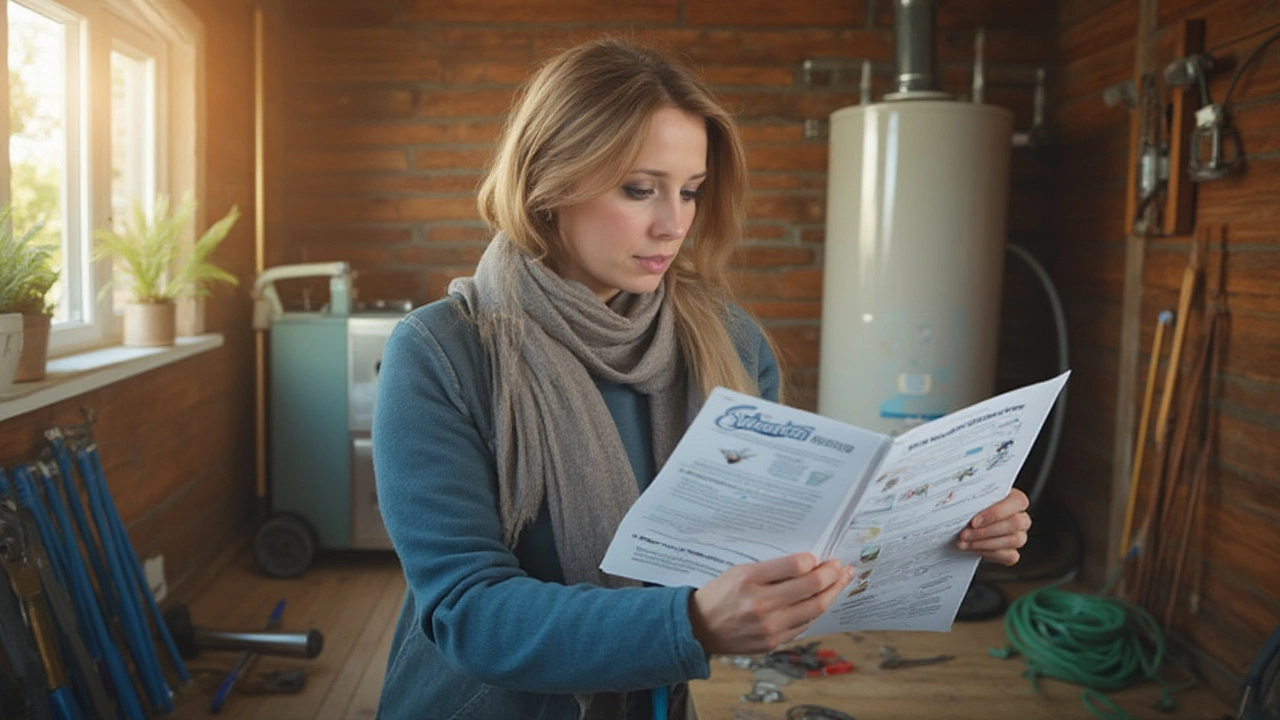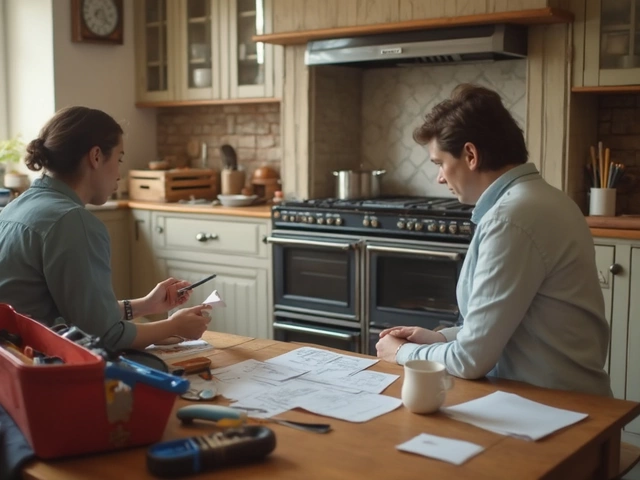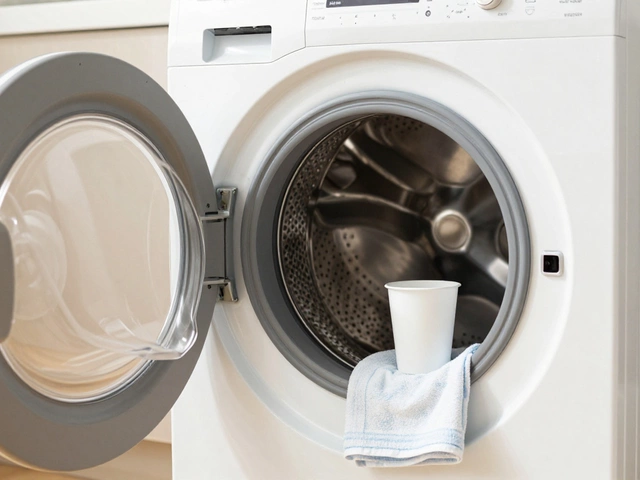If your showers feel lukewarm or you notice a strange taste in your water, a build‑up of sediment could be the cause. Flushing the water heater removes that gunk, improves efficiency, and can add years to the unit’s life. The good news? You don’t need a plumber for a basic flush – just a few tools and a little time.
Most experts recommend a full flush every 12 months, especially if you have hard water. In areas with very hard water, twice a year can prevent heavy scaling. Look out for warning signs: noisy heating, slower hot water recovery, or a cloudy water tank. When these appear, flush sooner rather than later.
1. Gather supplies. You’ll need a garden hose, a bucket, a wrench, and a pair of gloves. Turn off the power or gas to the heater – electric units need the breaker off, gas models need the pilot off.
2. Shut off the water supply. Locate the cold‑water inlet valve (usually at the top) and turn it clockwise until it stops. Open a hot‑water faucet somewhere in the house to relieve pressure.
3. Connect the hose. Attach the hose to the drain valve at the bottom of the tank. Run the other end to a floor drain or outside where the water can flow safely.
4. Drain the tank. Open the drain valve and let the water run until it looks clear. You may need to open the pressure‑relief valve on the side of the tank to let air in and speed up draining.
5. Flush the sediment. Once the tank is empty, briefly turn the cold‑water supply back on while the drain valve remains open. This stirs up any remaining debris and flushes it out. Let it run for a minute or two, then close the supply.
6. Refill and restart. Close the drain valve, remove the hose, and turn the cold‑water supply back on. Open a hot faucet until steady water flows – this purges any air. Finally, restore power or relight the pilot and let the heater heat up.
That’s it. A full flush only takes about 30‑45 minutes, but the payoff is quieter operation, lower energy bills, and longer life for your heater.
Want to keep track? Mark your calendar the day you finish and set a reminder for next year. If you notice persistent problems after flushing, it could be a sign of a failing element or a larger issue – that’s when calling a professional makes sense.
Regular flushing also helps maintain warranty coverage for many brands, so keep the receipts and note the service date. A little effort now saves you from costly repairs down the line.
Bottom line: flushing your water heater is one of the cheapest maintenance tasks you can do yourself. It keeps hot water clean, cuts energy waste, and extends the lifespan of a key household appliance. Grab that hose and give your heater a fresh start today.

Wondering if you can flush your water heater yourself? Learn the step-by-step process, tools you'll need, and expert tips to extend your water heater's life.

Thinking about whether to repair an 8-year-old oven? This article digs into the real costs and benefits, from repair bills to how long ovens actually last. You'll get tips on diagnosing simple issues yourself, signs to look for before calling a pro, and how energy efficiency compares between old and new models. See how warranties, brand reputation, and parts availability impact the final call. Get advice that’s practical, straight-up, and doesn’t waste your time.

The longest average lifespan of a washing machine is 15-20 years for high-quality models with proper care. Most last 8-12 years, but maintenance, load size, and water quality make a huge difference. Learn how to extend your washer's life and when to repair vs. replace.

Discover if electric hobs can be fixed, cost breakdowns, DIY steps, safety tips, and when to replace. A practical guide for UK homeowners.

When it comes to microwaves, understanding their lifespan is crucial for homeowners looking to make informed decisions about maintenance and replacement. This article delves into the essential factors that affect the longevity of microwaves, offering practical tips on extending their lifespan and recognizing when it's time for a new one. You'll learn about common signs of wear and tear, the importance of proper usage, and how regular servicing can enhance performance. Discover how to keep your microwave running efficiently and what to do when repairs are inevitable.

Microwaves are essential in modern kitchens, but when they break down, deciding whether to repair or replace them can be tricky. This article explores the factors that influence repair decisions, common microwave issues, and when it's more economical to buy a new one. It also offers tips on maintaining your microwave to prevent future problems. Understand the costs involved and make an informed choice on your kitchen appliances.